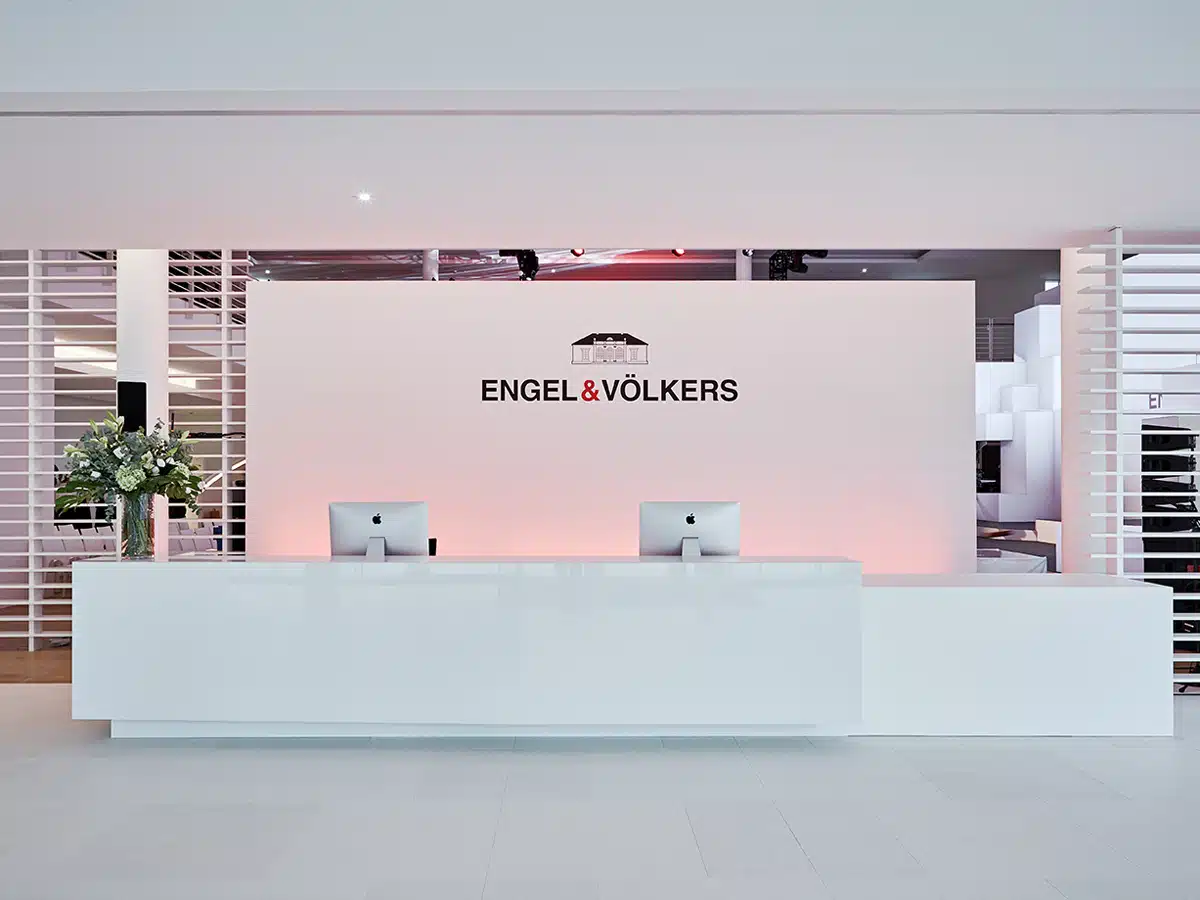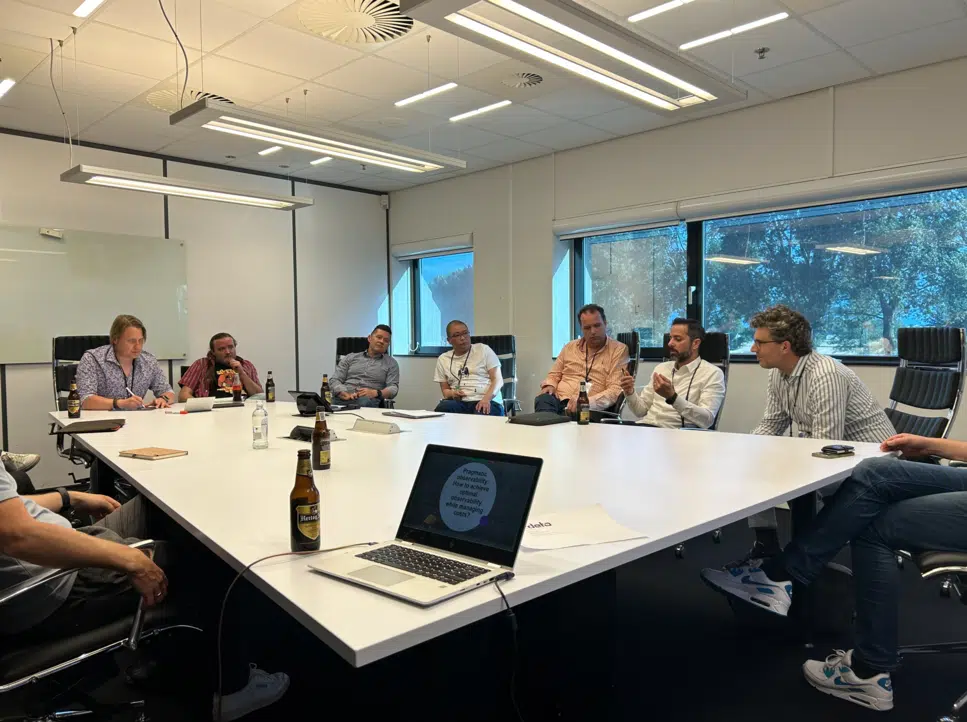We recently spoke with Mike Leigh, Senior Talent Acquisition Consultant @ Arqiva as part of our #TalentQA series where we interview leaders in talent management and recruitment from a range of businesses from tech startups to well-known fashion brands.
Mike talks about the changes he has seen in the industry, the struggles of sourcing and engaging the small pools of technical talent and how advancements in digital and technology will impact the recruitment industry and gives his advice on how to succeed in this ever-changing industry.
Third Republic (TR): To kick us off, could you explain a bit about your time in the talent acquisition industry and how you got to where you are today?
Mike Leigh (ML): My career in recruitment began 6 years ago. I’ve always had a passion for tech, so it seemed natural to work in recruitment placing tech professionals. I started my journey in agency recruitment and have been working in-house for Arqiva for around a year.
From my perspective recruitment is about providing a service. Finding the right people for the right roles. I think this mentality has got me to where I am today. From an in-house perspective, I really enjoy getting to interact with tech professionals on both sides – internally and externally.
TR: You have been working in technical recruitment now for almost 6 years, could you tell us about the changes you have seen throughout your time in the industry?
ML: In the last 6 years’ I’ve definitely seen an influx of US companies and startups enter the market specifically in London.
On the subject of startups I’ve also seen an influx of hubs across the UK cities including, Bristol, Guildford and most surprisingly in Scotland. There has definitely been a huge expansion in the years that I’ve been working in recruitment. There is certainly more demand and competition for tech talent in today’s market – such as DevOps and cybersecurity.
There are also new ways of working now, there’s more of a focus on agile working and work-life balance. It’s become more about adapting roles to suit the needs of candidates. There have been a number of changes over the last 6 years, but all very positive.
TR: Have you recognised a change in candidate behaviours during your time in the industry?
ML: Definitely, and I think technology is really driving this change as well. There are new ways to apply for jobs and new ways of sourcing and engaging talent. It’s become less about money and there’s more of a focus on work-life balance, agile working, company culture and generally finding the right organisation to provide you with more happiness.
A change in consumer behaviours, in general, is that everyone is looking for speed. People want a service or product delivered almost instantly. So, it’s become more important than ever to streamline processes and ensure that services are delivered in record time. This also comes down to competition too – the tech market is so competitive due to small pools of talent, that in order to secure the top talent you need to move quickly.
TR: How do you believe businesses can best react to these changes?
ML: It’s important to get the brand and name out there as much as you can. Demonstrate to potential employees what a great place it is to work – showcase what it’s really like to work for your organisation.
We are also trying to engage with our current employees and find out what it is that they like and maybe dislike about working for your business. This way you can highlight the real benefits of a role with your company and also make moves towards ensuring the business is an even better place to work.
I also think embracing platforms such as Glassdoor can help. This has the same effect as asking employees, it enables you to look into what you’re doing well and what issues you’re encountering as a firm and then you can work to fix these. It’s important to be listening and continuously research
Something that’s working for us at Arqiva, is the employee referral scheme. We have a number of exciting things happening, so who better to recommend us than our employees. We actively encourage and reward referrals because we’ve had quite a lot of success from it.
TR: Could you explain some of the benefits and challenges recruiters and talent teams face when sourcing technical talent in today’s increasingly digital age?
ML: It’s a very candidate-driven market, there’s definitely a lot more roles than candidates on the market. It’s highly competitive and moves so fast!
Also, with the emergence of new technologies, there aren’t enough specialists in these emerging fields such as DevOps and front-end technologies. Therefore, the biggest challenge we’re facing at the moment is how to attract and engage this small pool of talent.
The biggest benefit of working as a recruiter in today’s digital age is the fact that we have access to so many platforms and tools that are designed to make us more efficient. Also, the fact that the rate at which technology is advancing means we are working in a growing industry and talent will continue to emerge as more and more people adopt careers in tech.
TR: What sort of strategies do you adopt at Arqiva in terms of attracting, engaging and securing technical talent?
ML: Last month we implemented a bespoke cloud hr and recruitment platform, in order to help us streamline processes, which in turn, will allow us to be more proactive. My talent acquisition colleagues at Arqiva, all originate from an agency background, so we’ve tried to instil an agency mentality, in that we want to ensure recruitment processes are dealt with in a timely manner. Adopting a ‘next day’ mindset so as not to lose candidates to our competitors.
Due to the lack of technical talent out there, I think it’s almost just as important to nurture and encourage new talent, as it is to engage the most experienced talent. Offering graduate schemes and internships will definitely help to bring more talent into the world of tech.
I think that pipelining is key, ensuring that you are keeping connected and organised with who you contact. Also, looking into your competition – what are they doing to engage talent?
TR: Could you explain a bit about the differences you have recognised in going from consultancy recruitment to an in-house consultancy role?
ML: Essentially, we’re all doing the same thing. After seeing both struggles on both sides obviously the commonality we have is that we’re trying to find the best people to fill these roles.
From the agency side, I have seen that too many businesses don’t see their jobs as being a service, they view it solely as a sales role. Saying that there are a lot more agencies out there now that are specialists in their markets and do provide a genuine service to their clients and candidates. It’s about providing a great recruitment journey from both sides – in-house and agency.
TR: Would you say that being a recruiter in today’s increasingly digital age requires more advanced relationship and people management skills?
ML: Yes definitely, I think specifically from an agency perspective it’s so important to be a true specialist in your field. There are more challenges for agencies to win over clients and candidates, so ensuring you’re an expert in your industry and providing great client/candidate experience is crucial.
There will be a lot of agencies that don’t survive in the changing market, because of their values and the focus on just making money rather than providing a service and building relationships. It’s about getting yourself out there, providing added value to your customers in the form of meetups and blogs – this goes for both agencies and in-house teams.
TR: Looking forward, do you think the rise in digital and technology will continue to influence and alter the industry?
ML: Definitely, I know there’s been a lot of talk about AI and how this might replace recruitment in the future. Personally, I don’t think this will happen. There will always be a need for the human element of recruitment, and I think this can be seen in the growing importance of customer experience.
I think the rise in digital and technology will change the industry for the better. The introduction of AI and various new technology platforms will help to streamline processes and how we analyse data. The more administrative tasks will be taken away giving recruiters more time to be proactive and provide a better service as a result.
TR: Finally, what advice would you offer to talent professionals in order to keep up to date with the ever-evolving world of recruitment?
ML: Network and research as much as you can! There are a lot of great people out there who want to help talent professionals succeed, for example, Hung-Lee’s Recruiting Brainfood is phenomenal.
Also being passionate about what you’re doing – this goes for both the field you recruit into and recruitment in general. You could start writing your own blogs on recruitment or career advice, or if you don’t already, attend meetups and networking events to learn from your peers. Passion will definitely help you succeed in this industry.
If you’d like to take part in our #TalentQA series or you’re looking to source technical talent, get in touch today!





